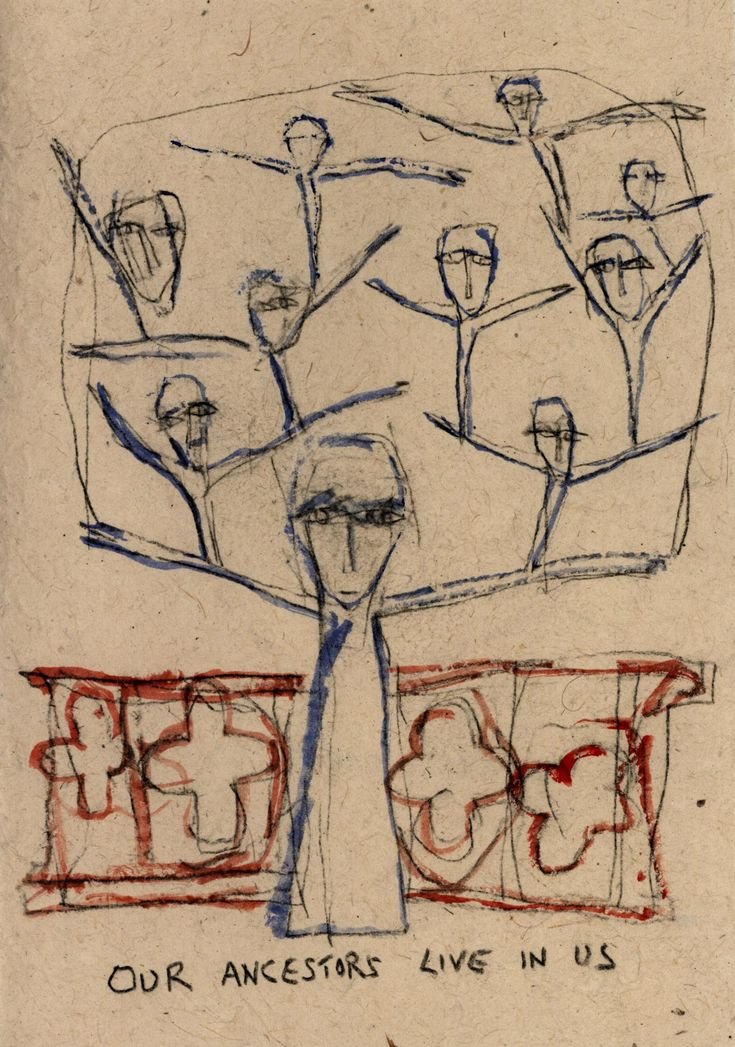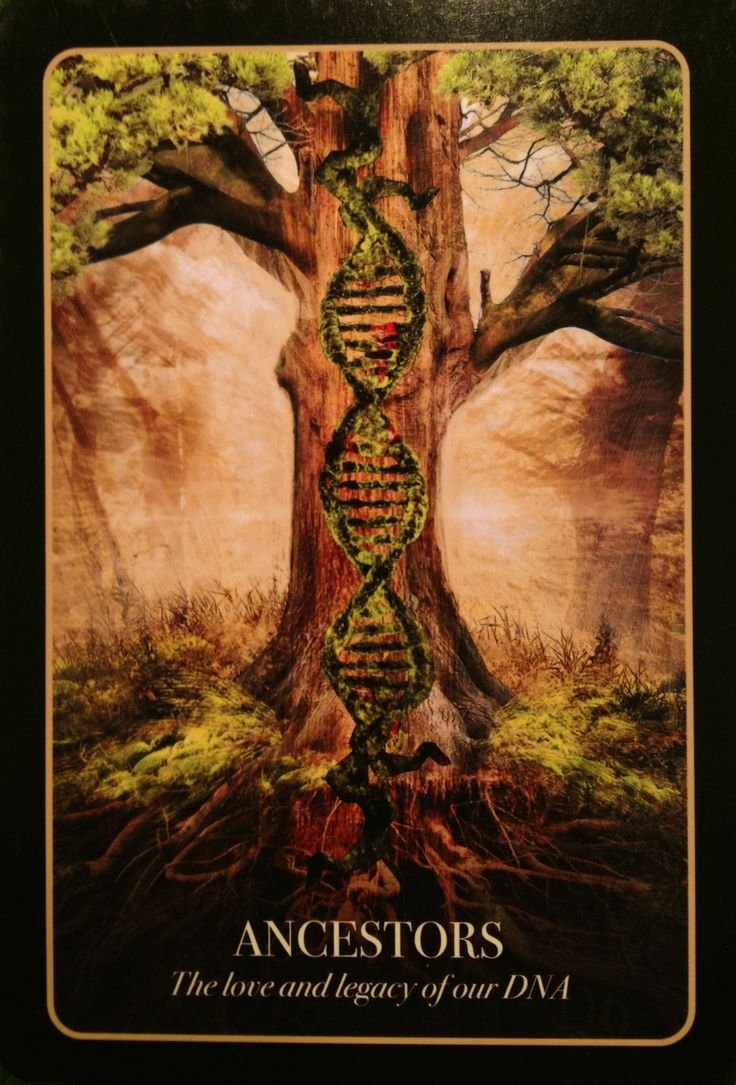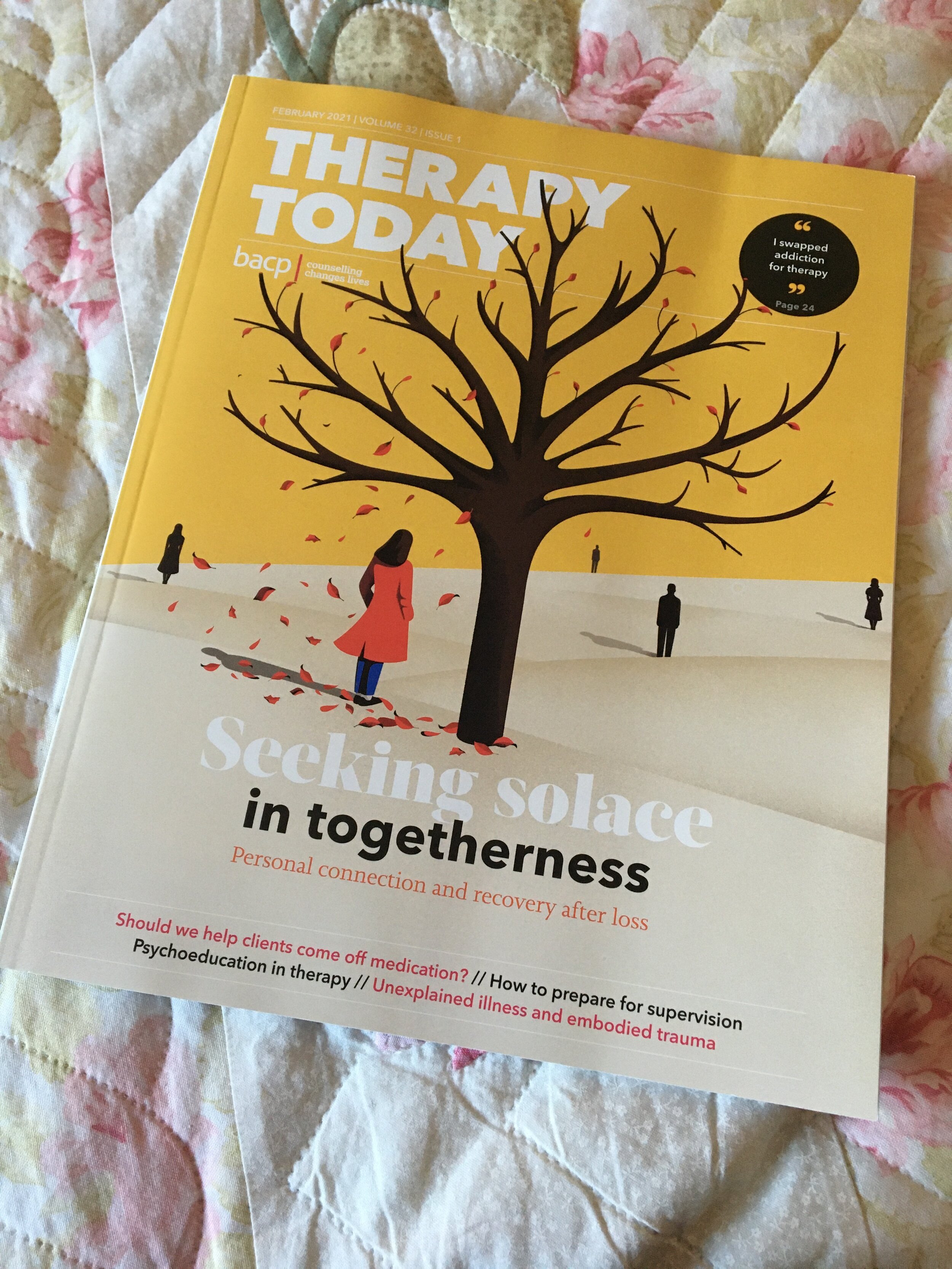The Cycle of Experience is a metaphor we use in Gestalt therapy that helps us to raise our self-awareness. It also helps us better attune to our embodied experience in the present moment. It is a simple way of exploring how we meet and respond to sensations and energy as they rise up in our body and where this process might get stuck or interrupted. Sensations and energy often signal to us a need that we have, or a desire, excitement, a want, or longing. This is a particularly useful model to work with if you feel disconnected from these parts of your experience, or if you struggle to listen to yourself and your body and find yourself moving through life on autopilot.
To bring it to life, I’ll use the diagram below to illustrate what it’s all about and how it can be of benefit to us in our lives.
An Illustration: Attending to Needs
I’m going to use the simple example of thirst.
At the bottom of the cycle, you will see what we refer to as the fertile void. This is a place of peace and quiet; it can be still and empty where no needs or sensations are pulling for our attention. In the fertile void, the ground may be still and quiet but it is pregnant with possibility. It is the liminal space from which all life springs forth.
So here, in this space, I am quietly present to myself and my experience when a sensation makes itself known, I notice my throat is dry. My awareness is activated as I realise that I am thirsty. My body then mobilises and I get up and move into action, locating my water and drinking it. This is the phase of contact. I am in contact with my need and am attending to it, through my contact with the environment (finding water). And, as my body assimilates the water, my thirst is quenched and I can now rest back, satisfied. As I am no longer thirsty, I am able to withdraw and sink back into the quiet stillness of the fertile void. Nothing to do, nowhere to go, just quietly present, satiated, until the next sensation emerges and pulls my attention, informing me of a call to action.
Some cycles may complete in a moment, like in the above example and others may take years to complete. Many of our needs will be complex and some may be abandoned before they’ve reached completion. And, we will have many cycles of experience happening at the same time, as well as competing and conflicting needs, which inevitably bring further layers of complexity. The invitation here is not to act on every single sensation, impulse, desire or need as they arise, but to simply raise our awareness around having needs in the first place, how they show up in our body and how we go about meeting them and integrating them…or not.
Interruptions To The Cycle
Typically we tend to get stuck at certain phases of the cycle. If for example, I am not used to inhabiting my body; if I have a tendency to disassociate or if I am consumed by my busy thinking mind, chances are I may not notice a sensation arising in my body and may well miss the signals of what it is my body is communicating in any given moment. Or maybe I learnt in my early life that my needs or my own impulses, for example, were not important and so I will have likely disconnected from any sensation that signals a need because as a child, it might have been the safest thing to have done. So it might be that I don’t even notice my needs, until something forces me to; maybe I feel delirious or faint and realise I haven’t eaten for hours or my entire body crashes after a prolonged period of high stress and then, burn out.
Or, maybe I am well aware of sensations as they arise in my body but perhaps, due to beliefs I hold about myself, I may not be able to mobilise enough energy and power to take action. If for example, a job opportunity comes along and I feel my initial excitement (sensation) but then think “urgh, I’m just not experienced enough, there’s no way I can do it,” my momentum, energy and power will likely collapse and keep me stuck in one place, unable to move forward into action and satisfaction, disrupting full completion of the cycle.
Additionally, in the dominant western culture, we are encouraged to live and work in a linear way with a heavy emphasis on busying and doing. Many of us can get stuck in the peak phase of the cycle - in sensation and action - moving on to the next thing, the next thing, the next thing with immediacy and speed. In so doing, we rob ourselves of the experience of assimilation, of satisfaction and of rest - experiences that ordinarily come once you’ve experienced the triumph of having completed a task or fulfilled a need, How often do you catch yourself thinking, “shit, I’ve just been through something huge and I’ve just moved on to the next thing without so much as stopping for breath!” And rest doesn’t have to be anything big or elaborate. I’m not talking about having to spend the day at a spa every time you complete a task (though wouldn’t that be nice!?). But just a simple acknowledgement of a cycle having been completed and seeing what it’s like to simply pause, breathe and listen quietly with an inner ear. That might be enough to activate your parasympathetic nervous system, supporting you to release a longer, deeper out breath. It might be all the rest you need. Or you might need more depending on the cycle you’re moving through.
Presence
The beauty of allowing ourselves more time to complete the cycles of our lives, is that we can slow down a little, we can become more present, more attuned to our needs, to our cyclical rhythm and we get to experience the creativity that is inherent within the fertile void. When I can take the time to fully assimilate and integrate an experience, and perhaps the accompanying trials and tribulations that I had to navigate as part of it, real learning and growth is cultivated. Becoming attuned to our own cycles and taking the time to complete them consciously - that is, allowing both contact and withdrawal - means we also cultivate more spontaneity and more aliveness into our system. Ordinarily, we may have the experience of being organised by old habitual patterns where our senses can become dulled and we find ourselves moving through life on auto-pilot. And, who knows what new novel sensation may arise, what new experience life may be inviting us into if we pause and give ourselves a little more space to be present to the rich and varied cycles of our experience?
Deepening enquiry and journaling prompts:
If you are curious about how you relate to your own sensations, needs, impulses, desires, you may find the following prompts useful to contemplate…
What phase of the cycle do you find yourself in most often?
Do you get stuck in any particular phase?
How does getting stuck there impact you and your life?
What does it cost you?
What are the hidden benefits?
What stops you from being able to flow into the next phase?
What core beliefs, values, introjected (should) messages interrupt you from completing each full cycle of experience? `







